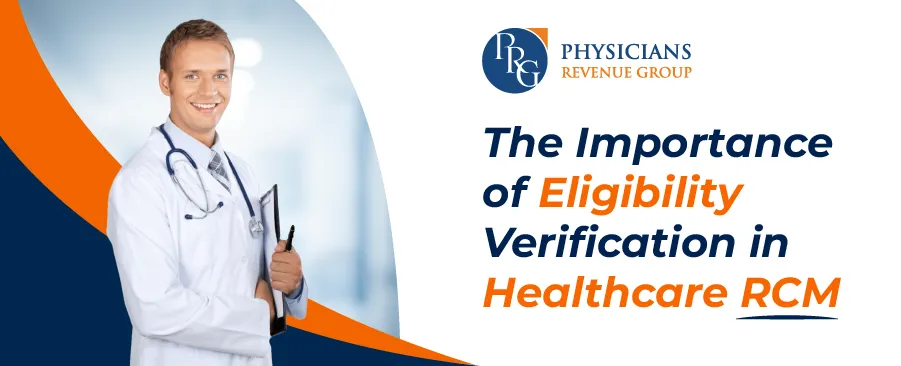
Email: info@prgmd.com | Call: +1 (630) 242-6474
Business hours: 9:00 to 5:00 | Monday to Friday
Email: info@prgmd.com | Call: +1 (630) 242-6474
Business hours: 9:00 to 5:00 | Monday to Friday

Table of Contents
ToggleRegarding accurate eligibility verification in healthcare RCM, there are several options – all of which impact the revenue stream in one way or another. The primary concern is how much the mode of patient verification ahead of time improves the payment rate for providers. Furthermore, the next consideration is the amount of time employees must spend in the verification process – manual verification costs more in terms of employee time than electronic verification. Revenue cycle management efficiency depends on efficient patient eligibility verification – let’s understand its impact.
There are a few ways in which patient eligibility impacts the time practices need to wait for full payment of their services; these include:
Outsourcing eligibility verification in healthcare RCM frees up valuable time and resources that can be used in your practice. Instead of having your staff juggle multiple responsibilities, they focus more on your practice’s core operations, including patient care and practice revenue generation. With a professional team handling your revenue cycle management process, you can:
All of this results in a smoother and faster revenue cycle, leading to better cash flow and reducing claim denials.
An insurance verifier is a person who ensures smooth operations. They are an integral part of the staff. Insurance verifiers work with the patient, handle all the paperwork, and verify patient information with insurance carriers. Their role is vital for facilitating the entire RCM process, thus maximizing reimbursements.
Insurance verifiers work to verify the following:
Eligibility verification in healthcare RCM is the process of verifying a patient’s insurance in terms of:
Share:
Categories
Recently Added

What is an ABN in medical billing?

What does a Clearinghouse do During Claims Submission?

What is EOR in Medical Billing?
We Would Love to Assist You!
We treat your data confidentially and don’t share any information with a third party.